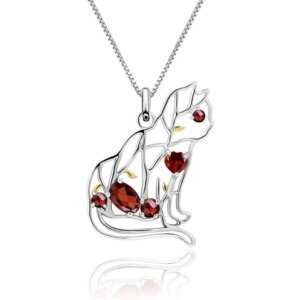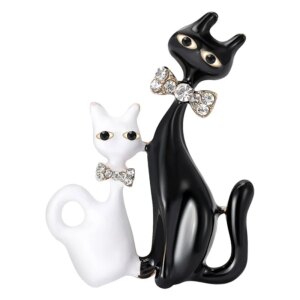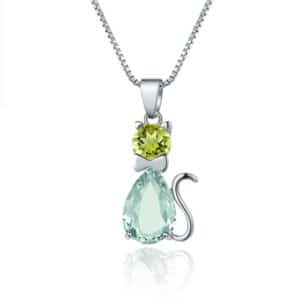Cats keep sneezing can be a concerning issue for pet owners. At Cat Karma Creations, we understand the importance of keeping your feline friends healthy and happy. This article will explore the common causes of cat sneezing, such as allergies, infections, and irritants, and provide practical tips for managing and treating these symptoms. By understanding the underlying reasons for your cat’s sneezing, you can ensure they stay healthy and comfortable. Whether you’re dealing with occasional sneezes or persistent sneezing fits, this guide will help you identify the problem and take the necessary steps to address it.
Cats Keep Sneezing: Common Causes
Allergies
Allergies are a common cause of cat sneezing. Cats can be allergic to various substances, including pollen, dust, mold, and certain foods. These allergens can trigger an immune response, leading to symptoms like sneezing, watery eyes, and itching. Identifying the specific allergen is crucial for effective treatment. Regular cleaning, hypoallergenic diets, and air purifiers can help reduce exposure to allergens and alleviate symptoms. If you’re looking for hypoallergenic products, check out our Stylish Cat Lover Necklaces and other cat-themed gifts that are perfect for allergy-sensitive homes.
Infections
Infections, whether viral, bacterial, or fungal, can also cause cats to sneeze. Common symptoms include sneezing, coughing, fever, and lethargy. Viral infections, such as feline herpesvirus and calicivirus, are particularly prevalent and can lead to severe respiratory issues. Bacterial and fungal infections can also cause significant health problems. Veterinary treatment, including antibiotics, antivirals, and antifungals, is often necessary to resolve these infections and prevent complications. If you need more information or support, feel free to contact us or follow us on Facebook for updates and tips.
Irritants
Irritants in the environment can irritate a cat’s respiratory system and trigger sneezing. Common irritants include smoke, chemicals, perfumes, and strong odors. These substances can cause sneezing, runny noses, and eye irritation. Avoiding exposure to these irritants and improving indoor air quality can help reduce sneezing episodes. Using air purifiers, ensuring proper ventilation, and minimizing the use of harsh chemicals can create a safer environment for your cat. For more tips on creating a cat-friendly home, visit our Elegant Cat Brooch page for inspiration.
Other Health Issues
While allergies, infections, and irritants are the most common causes of cat sneezing, other health issues can also be responsible. These include dental problems, nasal polyps, and foreign objects lodged in the nasal passages. Dental issues, such as tooth infections or gum disease, can cause sneezing and nasal discharge. Nasal polyps are growths that can block the nasal passages and lead to sneezing and breathing difficulties. Foreign objects, like grass or small toys, can get stuck in the nasal passages and cause irritation and sneezing. If your cat’s sneezing persists or is accompanied by other symptoms, it’s important to consult a veterinarian for a thorough examination. For more information, you can also visit our Silver Cat Earrings page.
Symptoms of Cat Sneezing
Sneezing and Runny Nose
A runny nose is a common symptom that accompanies cat sneezing. This can be a sign of an underlying health issue, such as an infection or allergy. Cats with a runny nose may also exhibit other symptoms like coughing, fever, and lethargy. If the discharge is clear and watery, it may indicate an allergy. If it is thick and discolored, it could be a sign of an infection. Regular veterinary check-ups can help diagnose and treat the underlying cause of a runny nose and sneezing. If you need more information, feel free to contact us or follow us on Instagram for updates and tips.
Sneezing and Coughing
Coughing can often accompany sneezing in cats, especially if the underlying issue is an infection or respiratory problem. Cats with a viral or bacterial infection may experience both sneezing and coughing, along with other symptoms like fever and lethargy. Coughing can also be a sign of asthma, which is a chronic respiratory condition that affects some cats. Managing the underlying cause, whether through medication or environmental changes, is essential for alleviating both sneezing and coughing. For more information on managing respiratory issues, visit our Charming Cat Brooch page.
Sneezing and Watery Eyes
Sneezing and watery eyes often go hand in hand, especially in cats with allergies. Allergens like pollen, dust, and mold can irritate the eyes and nasal passages, leading to sneezing and tearing. Watery eyes can also be a sign of an upper respiratory infection or irritants in the environment. Keeping the home clean and using air purifiers can help reduce exposure to allergens and irritants, thereby alleviating these symptoms. For more tips on creating a clean and healthy environment, visit our Elegant Cat Brooch page.
Sneezing and Lethargy
Lethargy, or a lack of energy, can be a concerning symptom in cats that sneeze. If your cat is sneezing and seems less active or less interested in their usual activities, it could be a sign of a more serious health issue. Lethargy can be caused by infections, allergies, or other underlying conditions. It’s important to monitor your cat’s behavior and seek veterinary care if the lethargy persists or is accompanied by other symptoms like loss of appetite, fever, or difficulty breathing. For more information, feel free to contact us or follow us on Pinterest for updates and tips.
Treatment Options for Cat Sneezing
Home Remedies
Natural remedies and home treatments can be effective in managing mild cases of cat sneezing. Herbs like chamomile and echinacea can help boost the immune system and alleviate symptoms. Steam therapy, which involves placing your cat in a steam-filled room, can help clear nasal passages and reduce congestion. Dietary changes, such as switching to a hypoallergenic diet or adding supplements like omega-3 fatty acids, can also support your cat’s overall health and reduce sneezing episodes. For more information on natural remedies, visit our Stylish Cat Lover Necklaces page.
Veterinary Treatments
In more severe cases, veterinary treatments may be necessary to address the underlying cause of cat sneezing. Antibiotics, antivirals, and antifungals can treat infections, while antihistamines and allergy shots can help manage allergies. In some cases, surgery may be required to remove nasal polyps or foreign objects. Regular veterinary check-ups and follow-up care are essential for ensuring your cat’s health and well-being. For more information, feel free to contact us or follow us on Twitter for updates and tips.
Preventive Measures
Preventing cat sneezing involves a combination of environmental control, regular veterinary care, and a healthy diet. Creating a cat-friendly environment that minimizes exposure to allergens and irritants is crucial. This includes regular cleaning, using air purifiers, and ensuring proper ventilation. Regular veterinary check-ups can help identify and treat underlying health issues before they become more serious. A balanced diet that supports your cat’s immune system and overall health can also reduce the risk of sneezing and other respiratory issues. For more information on preventive measures, visit our Silver Cat Earrings page.
Preventing Cat Sneezing
Creating a Cat-Friendly Environment
Creating a cat-friendly environment is essential for preventing cat sneezing. This involves reducing exposure to allergens and irritants that can trigger sneezing. Regular cleaning, using hypoallergenic cleaning products, and vacuuming frequently can help minimize dust and mold. Air purifiers and dehumidifiers can improve indoor air quality and reduce the presence of allergens. Ensuring proper ventilation, especially in areas where your cat spends a lot of time, can also help prevent respiratory issues. For more tips on creating a cat-friendly environment, visit our Elegant Cat Brooch page.
Regular Veterinary Check-Ups
Regular veterinary check-ups are crucial for maintaining your cat’s health and preventing sneezing. During these check-ups, your veterinarian can perform a thorough examination to identify and treat any underlying health issues. They can also provide recommendations for managing allergies, infections, and other conditions that may cause sneezing. Regular check-ups can help catch problems early and prevent them from becoming more serious. For more information, feel free to contact us or follow us on Facebook for updates and tips.
Diet and Nutrition
A balanced diet is essential for supporting your cat’s immune system and overall health. Feeding your cat a high-quality, nutritionally balanced diet can help reduce the risk of sneezing and other respiratory issues. Hypoallergenic diets can be particularly beneficial for cats with food allergies. Adding supplements like omega-3 fatty acids and probiotics can also support your cat’s immune system and promote digestive health. Consulting with your veterinarian can help you choose the right diet and supplements for your cat. For more information on diet and nutrition, visit our Stylish Cat Lover Necklaces page.
Popular Quote
“A cat improves the garden much more than a statue does.” – Unknown
Statistical Fact
According to the American Veterinary Medical Association, approximately 10% of cats suffer from allergies, which can often manifest as sneezing. This statistic highlights the importance of understanding and managing allergies in cats to ensure their well-being. (Source: American Veterinary Medical Association)
Three Tips for Managing Cat Sneezing
- Regular Cleaning: Keep your home clean and free from dust, mold, and other allergens. Use hypoallergenic cleaning products and vacuum frequently to reduce exposure to irritants.
- Use Air Purifiers: Invest in a high-quality air purifier to improve indoor air quality and reduce the presence of allergens. This can help alleviate sneezing and other respiratory issues in your cat.
- Consult Your Vet: Regular veterinary check-ups are essential for identifying and treating underlying health issues that may cause sneezing. Your vet can provide personalized advice and treatment options to keep your cat healthy.
Popular Questions About Cat Sneezing
- What are the most common causes of cat sneezing? The most common causes of cat sneezing include allergies, infections, and irritants in the environment. Identifying the specific cause is crucial for effective treatment.
- How can I tell if my cat’s sneezing is due to an allergy? If your cat’s sneezing is accompanied by symptoms like watery eyes, itching, and a clear, watery discharge from the nose, it may be due to an allergy. Consulting with a veterinarian can help confirm the cause.
- What are some natural remedies for cat sneezing? Natural remedies like chamomile, echinacea, and steam therapy can help alleviate mild cases of cat sneezing. Dietary changes, such as switching to a hypoallergenic diet, can also support your cat’s immune system.
- When should I take my cat to the vet for sneezing? If your cat’s sneezing persists or is accompanied by other symptoms like fever, lethargy, or difficulty breathing, it’s important to consult a veterinarian. Early diagnosis and treatment can prevent more serious health issues.
Final Thoughts About Cats Keep Sneezing
Cats keep sneezing can be a sign of various health issues, from allergies to infections. By understanding the common causes and symptoms, you can take the necessary steps to ensure your cat’s well-being. Regular veterinary check-ups, a clean environment, and a balanced diet are key to managing and preventing cat sneezing. If you’re concerned about your cat’s sneezing, don’t hesitate to contact your vet for professional advice and treatment. For more information and support, feel free to contact us at Cat Karma Creations or follow us on Instagram for updates and tips.
| Feature | Allergies | Infections | Irritants |
|---|---|---|---|
| Common Causes | Pollen, dust, mold, food | Viruses, bacteria, fungi | Smoke, chemicals, perfumes |
| Symptoms | Sneezing, watery eyes, itching | Sneezing, coughing, fever, lethargy | Sneezing, runny nose, eye irritation |
| Treatment Options | Antihistamines, allergy shots | Antibiotics, antivirals, antifungals | Air purifiers, avoiding irritants |
| Prevention | Regular cleaning, hypoallergenic diet | Vaccinations, hygiene | Ventilation, air quality control |
| Impact on Health | Chronic discomfort, respiratory issues | Severe illness, secondary infections | Temporary discomfort, respiratory issues |
- Identify common allergens that can cause sneezing in cats, such as pollen, dust, and mold.
- Understand the symptoms of cat sneezing and how they can indicate different health issues.
- Explore natural remedies and home treatments to alleviate cat sneezing, including herbal supplements and dietary changes.
- Learn about the importance of regular veterinary check-ups to diagnose and treat underlying causes of cat sneezing.
- Discover how to create a cat-friendly environment that minimizes irritants and promotes respiratory health.
- Understand the role of diet in managing cat sneezing, and how to choose the right food to support your cat’s immune system.
















